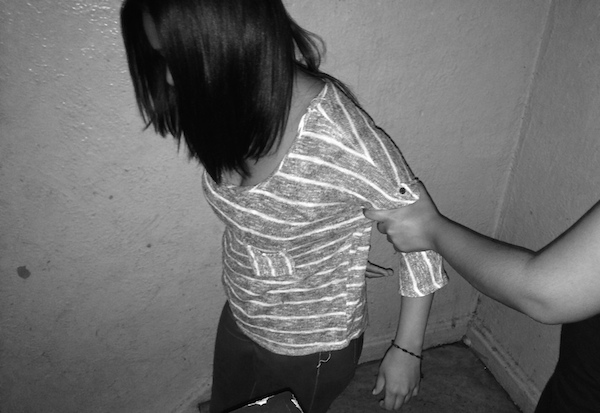 A new campaign offers help and hope.
A new campaign offers help and hope.
Recently, all CUNY students received an email about the University’s proposed policy against sexual harassment and sexual violence. CUNY has assembled a working group of lawyers, student affairs professionals and other administrators who have been meeting frequently to determine how to revise its bylaws and policies.This comes in the wake of a national discussion about sexual violence against college women that has gone as high as the president.
According to the Not Alone report on sexual violence released by the White House last spring, one in five women are sexually assaulted in college. More recently, President Obama launched a campaign called “It’s on Us,” a plan to end sexual assault on campus. “It is on all of us to reject the quiet tolerance of sexual assault and to refuse to accept what’s unacceptable,” he said.
The problem has hit close to home. Hunter College, was recently on a list of 55 colleges under investigation for sexual assault problems. And the recent story of the rape of female student at nearby Columbia University has many on edge. That student has created a protest by carrying a mattress around until her rape allegations have been properly investigated.
Many female students are on edge. “Hearing the news about the Columbia University student being raped was terrifying,” says Altagracia Ventura, 33, a student at Hunter College. “To know she was in the comfort of her own space and yet still got taken advantage of, it’s a scary image. It makes me think of when my daughter goes away to college, that’s saying a lot considering she’s only 10 years old.”
Other students say they are glad CUNY is taking action. Senior Victoria Paniagua usually deletes all citymail emails but when she received the one about sexual assault she stopped to read it. “When I read the headline I was immediately engaged,” says Paniagua, 24. “Sexual harassment is an issue that needs to be addressed.”
As CUNY collects data on this issue, pay attention to the tips from “It’s on Us” for preventing, avoiding and combating sexual violence on campus:
- Talk to your friends honestly and openly about sexual assault.
- Don’t just be a bystander — if you see something, intervene in any way you can.
- Trust your gut. If something looks like it might be a bad situation, it probably is.
- Be direct. Ask someone who looks like they may need help if they’re ok.
- Get someone to help you if you see something — enlist a friend, RA, bartender, or host to help step in.
- Keep an eye on someone who has had too much to drink.
- If you see someone who is too intoxicated to consent, enlist their friends to help them leave safely.
- Recognize the potential danger of someone who talks about planning to target another person at a party.
- Be aware if someone is deliberately trying to intoxicate, isolate, or corner someone else.
- Get in the way by creating a distraction, drawing attention to the situation, or separating them.
- Understand that if someone does not or cannot consent to sex, it’s rape.
- Never blame the victim.
If you are a victim or survivor, or helping someone in that situation, go to notalone.gov to get the resources and information you need. You can also call the National Sexual Assault Hotline at 1-800-656-HOPE.
